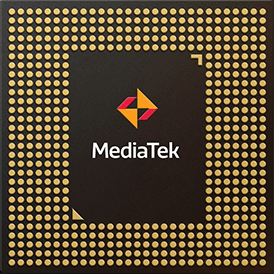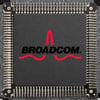
MediaTek MT6750 Benchmark, Test and specs
Last updated:
The MediaTek MT6750 has 8 cores with 8 threads and is based on the 1. gen of the Mediatek MT-Serie series. The processor was released in Q2/2016. The MediaTek MT6750 scores 126 points in the Geekbench 5 single-core benchmark. In the Geekbench 5 multi-core benchmark, the result is 596 points.

| Name: | MediaTek MT6750 |
|---|---|
| Family: | Mediatek MT-Serie (72) |
| CPU group: | MediaTek MT67xx (17) |
| Architecture: | Cortex-A53 |
| Segment: | Mobile |
| Generation: | 1 |
| Predecessor: | -- |
| Successor: | -- |
CPU Cores and Base Frequency
The MediaTek MT6750 has 8 CPU cores and can calculate 8 threads in parallel. The clock frequency of the MediaTek MT6750 is 1.50 GHz. The number of CPU cores greatly affects the speed of the processor and is an important performance indicator.
| CPU Cores / Threads: | 8 / 8 |
|---|---|
| Core architecture: | hybrid (big.LITTLE) |
| A-Core: | 4x Cortex-A53 |
| B-Core: | 4x Cortex-A53 |
| Hyperthreading / SMT: | No |
|---|---|
| Overclocking: | No |
| A-Core Frequency: | 1.50 GHz |
| B-Core Frequency: | 1.00 GHz |
Internal Graphics
The MediaTek MT6750 has integrated graphics, called iGPU for short. Specifically, the MediaTek MT6750 uses the ARM Mali-T860 MP2, which has 32 texture shaders and 2 execution units. The iGPU uses the system's main memory as graphics memory and sits on the processor's die.
| GPU name: | ARM Mali-T860 MP2 |
|---|---|
| GPU frequency: | 0.52 GHz |
| GPU (Turbo): | 0.52 GHz |
| Compute units: | 2 |
| Shader: | 32 |
| Hardware Raytracing: | No |
| Release date: | Q4/2015 |
| Max. displays: | 2 |
|---|---|
| Generation: | Midgard 4 |
| Direct X: | 11 |
| Technology: | 28nm |
| Max. GPU Memory: | -- |
| Frame Generation: | No |
Hardware codec support
A photo or video codec that is accelerated in hardware can greatly accelerate the working speed of a processor and extend the battery life of notebooks or smartphones when playing videos.
| h265 / HEVC (8 bit): | Decode / Encode |
|---|---|
| h265 / HEVC (10 bit): | Decode |
| h264: | Decode / Encode |
| VP8: | Decode / Encode |
| VP9: | No |
| AV1: | No |
|---|---|
| AVC: | No |
| VC-1: | No |
| JPEG: | Decode / Encode |
Memory & PCIeThe processor can use up to 4 GB memory in 1 (Single Channel) memory channels. The maximum memory bandwidth is 5.3 GB/s. The memory type as well as the amount of memory can greatly affect the speed of the system. |
|
| Memory type: | Memory bandwidth: |
|---|---|
| LPDDR3-667 | 5.3 GB/s |
| Max. Memory: | 4 GB |
| Memory channels: | 1 (Single Channel) |
| ECC: | No |
| PCIe: | |
| PCIe Bandwidth: | -- |
Thermal ManagementThe thermal design power (TDP for short) of the processor is . The TDP specifies the necessary cooling solution that is required to cool the processor sufficiently. The TDP usually gives a rough idea of the actual power consumption of the CPU. |
|
|---|---|
| TDP (PL1 / PBP): | |
| TDP (PL2): | -- |
| TDP up: | -- |
| TDP down: | -- |
| Tjunction max.: | -- |
Technical details
The MediaTek MT6750 is made in 28 nm. The smaller the manufacturing process of a CPU, the more modern and energy-efficient it is. Overall, the processor has 0.00 MB cache. A large cache can greatly speed up the processor's speed in some cases such as games.
| Technology: | 28 nm |
|---|---|
| Chip design: | Chiplet |
| Socket: | -- |
| L2-Cache: | -- |
| L3-Cache: | -- |
| AES-NI: | No |
| Operating systems: | Android |
| Virtualization: | None |
|---|---|
| Instruction set (ISA): | Armv8-A (64 bit) |
| ISA extensions: | -- |
| Release date: | Q2/2016 |
| Release price: | -- |
| Part Number: | -- |
| Documents: | Technical data sheet |
Rate this processor
Benchmark results

The benchmark results for the MediaTek MT6750 have been carefully checked by us. We only publish benchmark results that have been created by us or that have been submitted by a visitor and then checked by a team member. All results are based on and fullfill our benchmark guidelines.
Geekbench 5, 64bit (Single-Core)
Geekbench 5 is a cross plattform benchmark that heavily uses the systems memory. A fast memory will push the result a lot. The single-core test only uses one CPU core, the amount of cores or hyperthreading ability doesn't count.

|
MediaTek MT6737T
4C 4T @ 1.50 GHz |
||

|
Qualcomm Snapdragon 435
8C 8T @ 1.40 GHz |
||

|
Qualcomm Snapdragon 616
8C 8T @ 1.70 GHz |
||
|
|
MediaTek MT6750
8C 8T @ 1.50 GHz |
||

|
Qualcomm Snapdragon 425
4C 4T @ 1.40 GHz |
||

|
MediaTek MT6750T
8C 8T @ 1.50 GHz |
||

|
MediaTek MT6750N
8C 8T @ 1.50 GHz |
||
Geekbench 5, 64bit (Multi-Core)
Geekbench 5 is a cross plattform benchmark that heavily uses the systems memory. A fast memory will push the result a lot. The multi-core test involves all CPU cores and taks a big advantage of hyperthreading.

|
Intel Celeron E3300
2C 2T @ 2.50 GHz |
||

|
Raspberry Pi 4 B (Broadcom BCM2711)
4C 4T @ 1.50 GHz |
||

|
Intel Atom Z3745
4C 4T @ 1.33 GHz |
||
|
|
MediaTek MT6750
8C 8T @ 1.50 GHz |
||

|
Intel Pentium 997
2C 2T @ 1.60 GHz |
||

|
Intel Pentium E2220
2C 2T @ 2.40 GHz |
||

|
Intel Pentium 3560Y
2C 2T @ 1.20 GHz |
||
Geekbench 6 (Single-Core)
Geekbench 6 is a benchmark for modern computers, notebooks and smartphones. What is new is an optimized utilization of newer CPU architectures, e.g. based on the big.LITTLE concept and combining CPU cores of different sizes. The single-core benchmark only evaluates the performance of the fastest CPU core, the number of CPU cores in a processor is irrelevant here.

|
Qualcomm Snapdragon 425
4C 4T @ 1.40 GHz |
||

|
Intel Atom C2350
2C 2T @ 2.00 GHz |
||

|
Intel Atom Z3740
4C 4T @ 1.86 GHz |
||
|
|
MediaTek MT6750
8C 8T @ 1.50 GHz |
||

|
Intel Atom x5-Z8300
4C 4T @ 1.84 GHz |
||

|
Intel Atom Z3745D
4C 4T @ 1.83 GHz |
||

|
AMD GX-412HC
4C 4T @ 1.60 GHz |
||
Geekbench 6 (Multi-Core)
Geekbench 6 is a benchmark for modern computers, notebooks and smartphones. What is new is an optimized utilization of newer CPU architectures, e.g. based on the big.LITTLE concept and combining CPU cores of different sizes. The multi-core benchmark evaluates the performance of all of the processor's CPU cores. Virtual thread improvements such as AMD SMT or Intel's Hyper-Threading have a positive impact on the benchmark result.

|
Intel Celeron J3355
2C 2T @ 2.50 GHz |
||

|
Intel Celeron N2940
4C 4T @ 2.25 GHz |
||

|
Intel Celeron N3150
4C 4T @ 2.08 GHz |
||
|
|
MediaTek MT6750
8C 8T @ 1.50 GHz |
||

|
MediaTek MT8168
4C 4T @ 2.00 GHz |
||

|
Intel Celeron 2957U
2C 2T @ 1.40 GHz |
||

|
Intel Celeron 2955U
2C 2T @ 1.40 GHz |
||
iGPU - FP32 Performance (Single-precision GFLOPS)
The theoretical computing performance of the internal graphics unit of the processor with simple accuracy (32 bit) in GFLOPS. GFLOPS indicates how many billion floating point operations the iGPU can perform per second.

|
MediaTek MT8127
ARM Mali-450 MP4 @ 0.60 GHz |
||

|
MediaTek MT6738T
ARM Mali-T860 MP2 @ 0.52 GHz |
||

|
MediaTek MT6750N
ARM Mali-T860 MP2 @ 0.52 GHz |
||
|
|
MediaTek MT6750
ARM Mali-T860 MP2 @ 0.52 GHz |
||

|
UNISOC SC9863A
PowerVR GE8322 @ 0.55 GHz |
||

|
Intel Core i5-560UM
Intel HD Graphics (Westmere) @ 0.73 GHz |
||

|
Intel Core i5-540UM
Intel HD Graphics (Westmere) @ 0.73 GHz |
||
Estimated results for PassMark CPU Mark
Some of the CPUs listed below have been benchmarked by CPU-monkey. However the majority of CPUs have not been tested and the results have been estimated by a CPU-monkey’s secret proprietary formula. As such they do not accurately reflect the actual Passmark CPU mark values and are not endorsed by PassMark Software Pty Ltd.

|
AMD Athlon II X2 220
2C 2T @ 2.80 GHz |
||

|
Intel Celeron 2980U
2C 2T @ 1.40 GHz |
||

|
Intel Celeron 2981U
2C 2T @ 1.40 GHz |
||
|
|
MediaTek MT6750
8C 8T @ 1.50 GHz |
||

|
Qualcomm Snapdragon 430
8C 8T @ 1.40 GHz |
||

|
Intel Pentium 2117U
2C 2T @ 1.80 GHz |
||

|
Intel Pentium 2127U
2C 2T @ 1.90 GHz |
||
Benchmarks

Geekbench 5 (SC)
2,488 entries
2,488 entries

Geekbench 5 (MC)
2,461 entries
2,461 entries

Geekbench 6 (SC)
1,755 entries
1,755 entries

Geekbench 6 (MC)
1,703 entries
1,703 entries

FP32 SP (iGPU)
2,042 entries
2,042 entries

PassMark CPU-Mark
2,392 entries
2,392 entries
Popular comparisons
back to index







